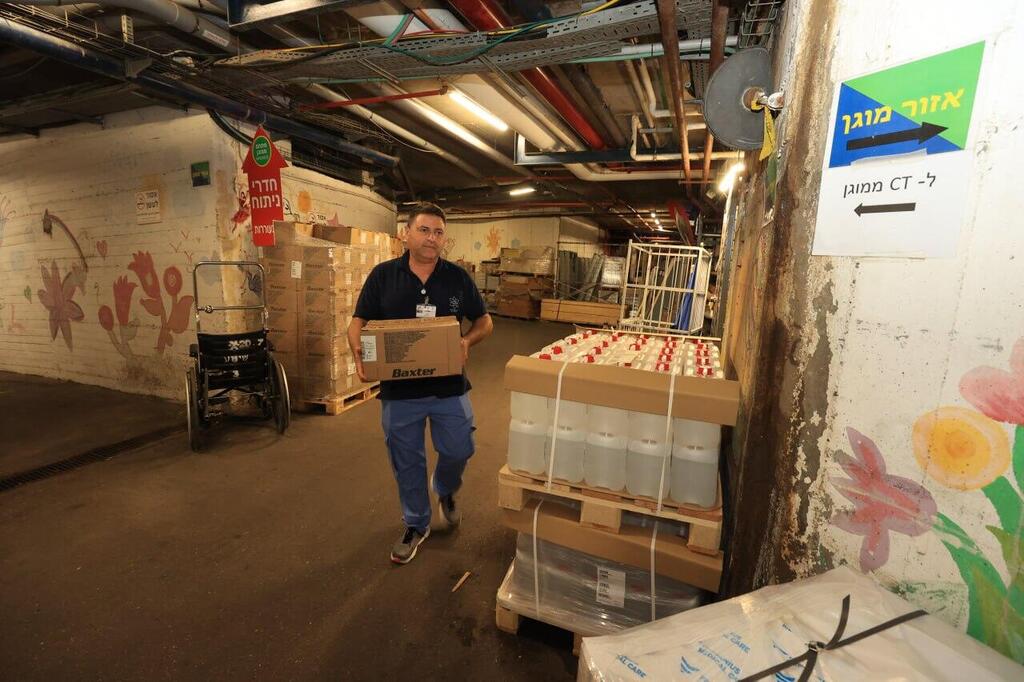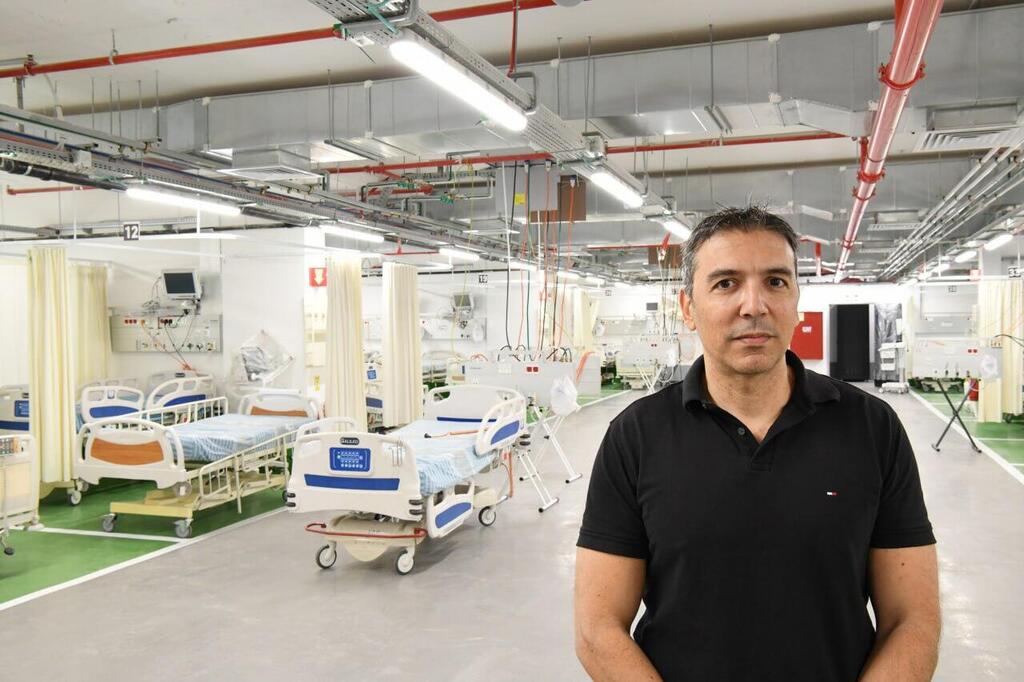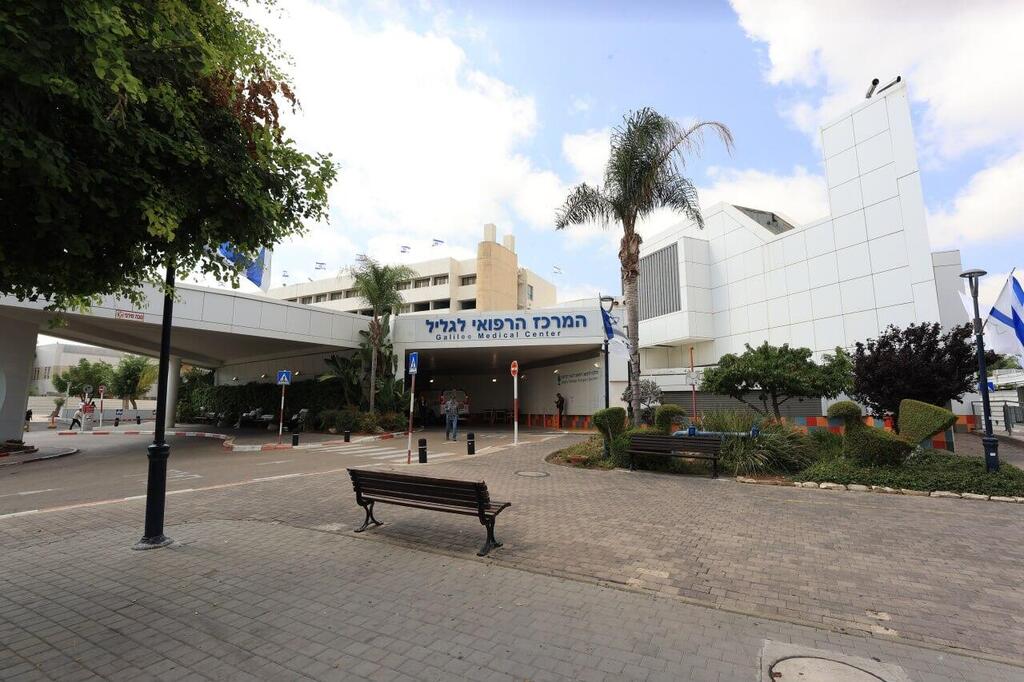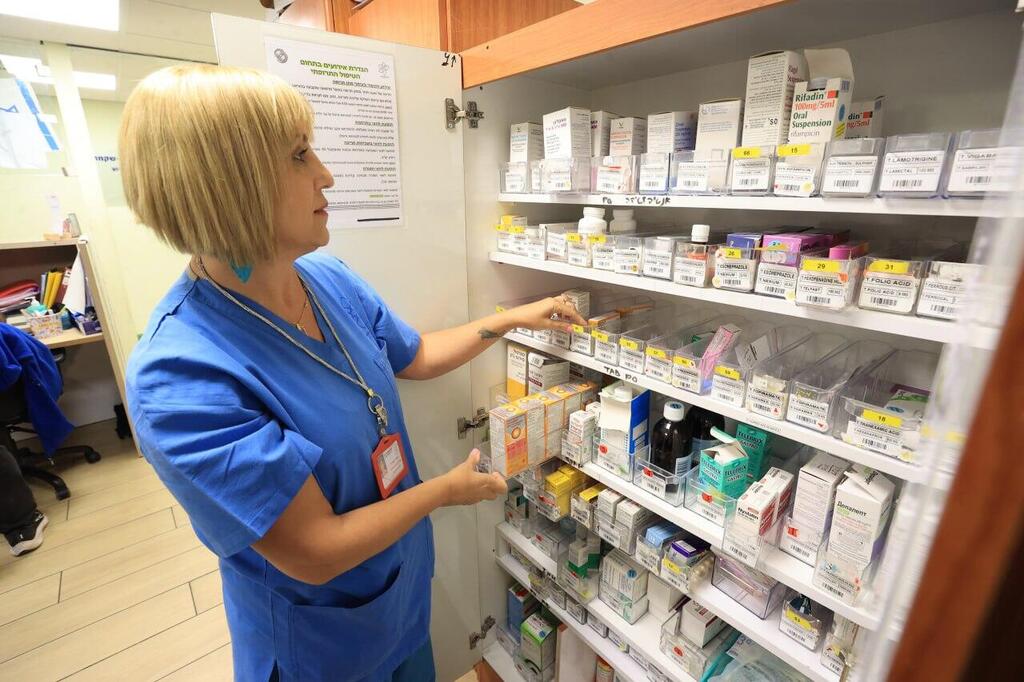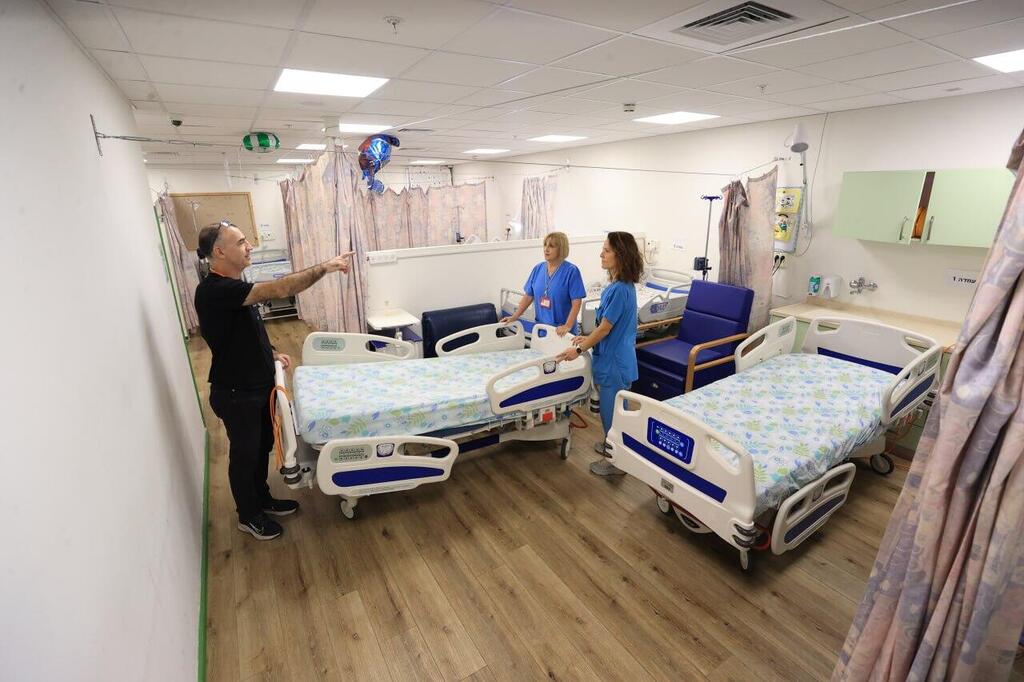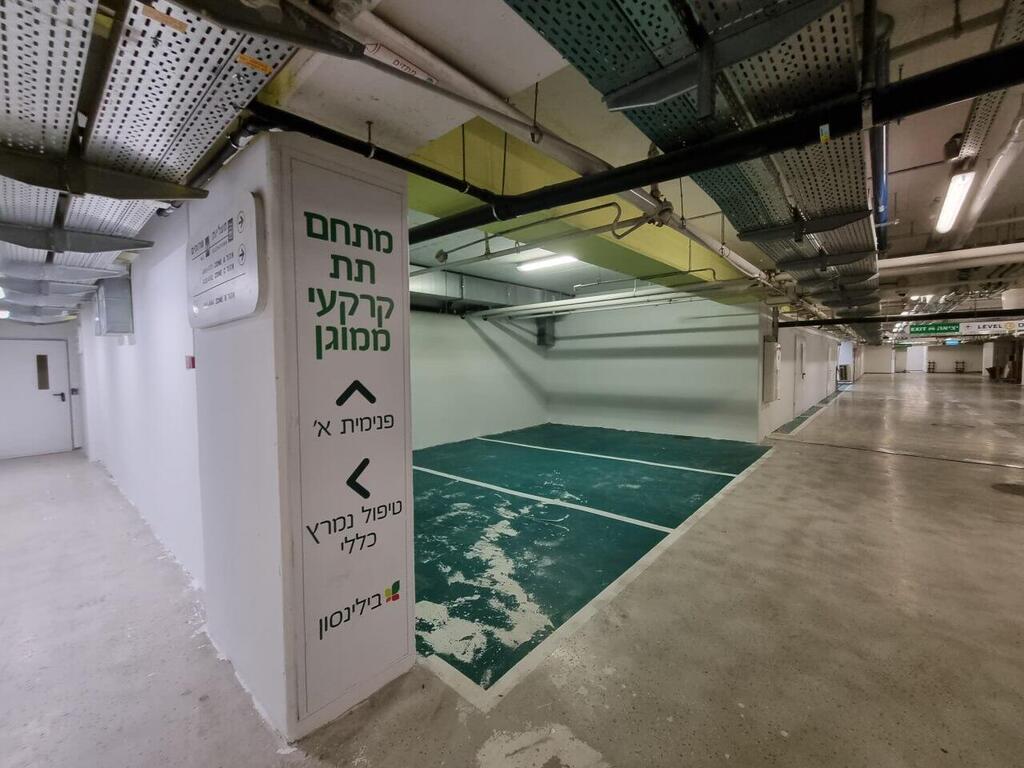Getting your Trinity Audio player ready...
In recent weeks, the Health Ministry has instructed hospitals nationwide to ensure they have adequate supplies of medications and diesel fuel for generators to maintain normal operations in the event of a power infrastructure collapse.
Hospitals have been advised to stockpile supplies for at least three months. In addition, some hospitals have been directed to secure sufficient blood supplies and prepare to quickly discharge patients to make room for potential war casualties.
Last week's events, including the targeted killings of Hezbollah military chief Fuad Shukr in Beirut and Hamas' politburo head Ismail Haniyeh in Tehran, along with threats of retaliation from Iran and the Lebanese militant group, have not prompted new directives. However, hospitals are ensuring they are prepared for mass casualty events or even more severe scenarios.
In an interview with Ynet and its sister publication Yedioth Ahronoth, four hospital directors discussed their preparedness, emphasizing that their plans are geared toward long-term incidents rather than short-term crises.
Emek Medical Center, Afula
"We have prepared infrastructure for 150 additional underground beds, in addition to the 150 we already had," said Emek Medical Center director Dr. Maor Maman. "Essentially, we now have a fully operational underground hospital and fortified areas, ready to treat 300 patients in protected conditions, in addition to our surgery and emergency room activities."
In anticipation of a prolonged and intense conflict, hospitals are also preparing for a scenario termed "isolated island," where access roads are damaged, and the supply of medical equipment and food is disrupted.
"We are stocking up on food, diesel and medical equipment for several months ahead, effectively setting up emergency infrastructure that will allow us to maintain operational continuity and provide care to a large number of patients," Dr. Maman continued.
In addition to Emek Medical Center, other hospitals in northern Israel may find themselves on the front lines of war. The potential shortage of medical personnel, which could worsen if reservists are called up, might be mitigated by medical students and emergency medical teams. For instance, medical teams from private hospitals in Nazareth will assist regional hospitals like Ziv in Safed, and staff from central Israel hospitals will be sent to northern hospitals.
Galilee Medical Center, Nahariya
"We have been ready for ten months," said Prof. Masad Barhoum, director of Galilee Medical Center in Nahariya, Israel's northernmost hospital, which recently endured heavy rocket fire from Lebanon, resulting in severe injuries to a local.
"All patients and staff are either underground or in fortified buildings, like intensive care units and the emergency room," explained Prof. Barhoum. "Our teams are already trained for ad-hoc mass casualty events. We have distributed satellite phones to the management, which we will activate only if, heaven forbid, there is a disruption to communication networks.
"Currently, there are no special instructions from the Health Ministry or Home Front Command. However, it must be clear that no one will break us or exhaust us. Every injured person, whether soldier or civilian, who enters the medical center will receive the best care.
"At any moment, there could be a mass casualty event, followed by another one. At any minute, there could be the outbreak of a mini-war or war. We need to be ready for this. We may be cut off for some time, and we have organized ourselves to be prepared to treat the wounded and operate operating rooms to serve patients. This war will not be like the Second Lebanon War, during which we more or less knew when the fire would occur.
"We are the closest hospital to any border, and personally, the only scenario that keeps me up at night is the possibility that not all attack tunnels have been exposed. Our medical teams are residents of the area, and they experience the reality of rockets falling not only on the hospital but also on their homes. Therefore, they cannot be exhausted. When your life is threatened, you cannot be exhausted."
In northern Israel, Rambam Health Care Campus in Haifa is expected to serve as the primary reception center for casualties from regional hospitals, with nearly 2,000 beds available in underground facilities since the start of hostilities.
Preparations for potential security escalations are being made not only in the north but throughout Israel. In the event of war and mass casualty events, hospitals in central Israel are expected to become the default for evacuating trauma victims, with leading facilities being Sheba Medical Center in Tel Hashomer, Sourasky Medical Center in Tel Aviv and Rabin Medical Center in Petah Tikva.
Rabin Medical Center, Petah Tikva
In response to escalating regional tensions, Rabin Medical Center director Dr. Lena Koren-Feldman, highlighted the hospital's enhanced readiness. "In recent days, we've reinforced and refreshed our comprehensive preparedness initiated on October 7," Dr. Koren-Feldman said.
"Our underground hospital has 350 beds, and we have an additional 150 to 200 fully fortified beds in our inpatient tower. Overall, the hospital can accommodate 800 beds that provide protection according to Health Ministry protocols."
"All emergency beds are equipped to convert into intensive care units, capable of supporting ventilated patients. We are preparing for long-range missiles with significant explosive potential and damage. We anticipate situations where dozens of people arrive at the hospital simultaneously and are prepared to handle waves of mass casualty events. Our emergency room is fully fortified, including the blood bank," she explained.
"In terms of diesel and water supplies, we have enough for three months. According to Health Ministry guidelines, we can operate as an 'isolated island,' supported by generators. All medical services available at any time, even during war, will remain accessible. There won't be any medical service unavailable here, and we can quickly resume oncology treatments. However, non-urgent surgeries may be postponed. Each department knows its order to move to the emergency area upon an alert and has organized its inventory lists."
Sheba Medical Center, Tel Hashomer
"We conduct daily situation assessments and have compiled a checklist of our supplies, exceeding the requirements set by the Health Ministry and the Home Front Command," Dr. Amir Greenberg, deputy director of operations and emergency services at Sheba Medical Center, described their ongoing readiness efforts. "Additionally, we are prepared for a cyber scenario, enabling us to continue operating functionally in the event of a cyberattack that disrupts our systems."
According to Dr. Greenberg, maintaining routine medical services is crucial, even during intense conflict. "We follow the Home Front Command and the Supreme Hospitalization Authority guidelines. We have a protocol for reducing inpatients, though we haven't done so in recent instances. We swiftly resume regular medical care," he noted.
"We are prepared for a large mass casualty event, having planned for all scenarios."
"People require various treatments, and we strive to maintain routine medical services, including scheduled surgeries. We have 18 fortified operating rooms approved for surgeries. We are expected to provide medical personnel to a hospital in the south, designated as a national asset during wartime. Magen David Adom will send teams, and we will dispatch medical teams to this hospital within 30 minutes by helicopter.
"Additionally, the Health Ministry instructed us and Rabin to assist Ziv Medical Center in Safed. Our doctors and nurses have already traveled to Safed, and we will join them and provide assistance as needed. We've also coordinated with the hospital in Nahariya and sent our teams there. We are prepared for a large mass casualty event, having planned for all scenarios. Given our hospital's role as a reserve for the entire country, we'll be in an expanded command center with situation assessments and personnel reserves at any threat to Israel," he concluded.




